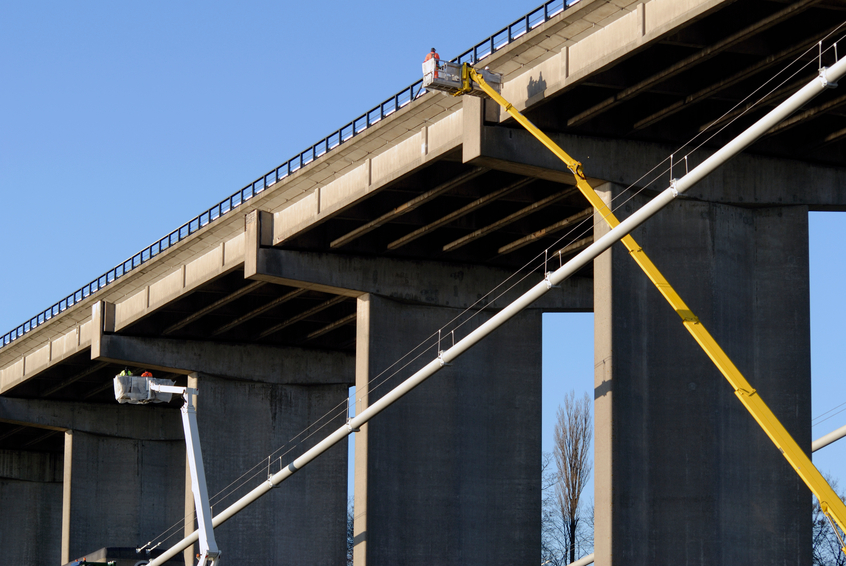Structural and FL Advanced Bldg. Code, Laws, Rules & Ethics 18 PDH Discount Package
Courses in this Package
Advanced Course on the Significant Changes in Florida Building Code 8th Edition (FL2-007 (FBC-1294.0))
Safe Rooms for Tornadoes and Hurricanes (S12-002)
Steel Bridges: Design for Fatigue (S02-029)
Engineering Laws, Rules and Ethics for Florida Professional Engineers (FL2-006)

This online PDH course is a Florida Building Code (FBC) approved course (FBC Course # 1294.0) and is being offered by Continuing Education and Development, Inc, a FL approved Continuing Education Provider (CEP No. 0004183).
This course provides an overview of the significant changes in Florida Building Code, Building, 8th edition (2023) which went into effect on December 31, 2023.
This course discusses the most significant changes from a set of chapters, and presents the amendments from the previous Florida Building Code (7th Edition, 2020) to the current Florida Building Code (8th Edition, 2023). In particular, this course covers the additions and/or modifications to the following chapters:
- Chapter 1: Scope and Administration;
- Chapter 4: Special Detailed Requirements Based on Occupancy and Use;
- Chapter 8: Interior Finishes and Decorative Materials;
- Chapter 10: Means of Egress;
- Chapter 14: Exterior Walls;
- Chapter 16: Structural Design;
- Chapter 29: Plumbing Systems; and
- Chapter 33: Safeguards During Construction.
This 2 PDH online course is applicable to Florida Professional Engineers who are required to take an Advanced Building Code course and are interested in learning more about the most significant changes that are introduced in the latest edition of the Florida Building Code.
This PE continuing education course is intended to provide you with the following specific knowledge and skills:
- Familiarizing with the Florida Building Code
- Learning about the most significant changes from the 7th edition of the Florida Building Code, Building, to the 8th edition
- Understanding the additions and modifications in the latest edition including inspections
- Learning about the new and updated requirements for occupancy, plumbing systems, and safeguards during construction
Upon successful completion of the quiz, print your Certificate of Completion instantly. (Note: if you are paying by check or money order, you will be able to print it after we receive your payment.) For your convenience, we will also email it to you. Please note that you can log in to your account at any time to access and print your Certificate of Completion.

This online engineering PDH course provides guidance on best practices related to the design, construction, and operation of community and residential safe rooms.
Tornadoes and hurricanes are among the most destructive forces of nature. Unfortunately, these types of windstorms continue to cause injury and death to people who are unable to safely evacuate or find shelter from these events. FEMA has long supported the development of hazard-resistant codes and standards by assessing how structures respond in a disaster. Assessment conclusions and recommendations are applied through active participation in the process of creating and developing building codes and standards.
This course describes the criteria for any safe room, private or public, to be constructed so that it is capable of providing near-absolute protection for its occupants during tornadoes and hurricanes. The guidance in this publication builds on knowledge gained through field investigations and research, represented in FEMA’s technical reports and publications, as well as information from other national and State agencies and universities that have studied the performance of the built environment during tornadoes and hurricanes.
This 12 PDH online course is applicable to structural engineers who are interested in gaining knowledge on the planning and engineering issues for design and construction of stand-alone safe room buildings, constructing safe rooms within a new building, and adding a safe room to an existing building.
This PE continuing education course is intended to provide you with the following specific knowledge and skills:
- Familiarizing with extreme wind risk assessment and analysis
- Familiarizing with operation and maintenance considerations for community safe rooms
- Gaining a general overview on the different types of safe rooms
- Learning about safe room costs and the calculation of project benefits
- Understanding the needed emergency provisions for different wind events and access and entry for safe rooms
Upon successful completion of the quiz, print your Certificate of Completion instantly. (Note: if you are paying by check or money order, you will be able to print it after we receive your payment.) For your convenience, we will also email it to you. Please note that you can log in to your account at any time to access and print your Certificate of Completion.

This online engineering PDH course provides the practicing engineer with the background required to understand and use the design rules for fatigue resistance that are currently a standard part of design codes for fabricated steel structures.
Fatigue in metals is the process of initiation and growth of cracks under the action of repetitive tensile loading. If crack growth is allowed to go on long enough, failure of the member can result when the uncracked cross-section is sufficiently reduced such that the member can no longer carry the internal forces from the crack which extends in an unstable mode. The fatigue process can take place at stress levels that are substantially less than those associated with failure under static loading conditions. The usual condition that produces fatigue cracking is the application of a large number of load cycles.
This 2 PDH online course is applicable to civil and structural engineers and professionals who are interested in learning more about fatigue and the different design standards for fabricated steel structures.
This PE continuing education course is intended to provide you with the following specific knowledge and skills:
- Gaining an overview and a historical perspective of fatigue in metals
- Familiarizing with crack growth and its underlying conditions
- Learning about the flaws in fabricated steel structures
- Understanding the load-induced and distortion-induced fatigue
- Understanding the finite/infinite life design
- Knowing about fracture control and the AASHTO provisions and specifications
In this professional engineering CEU course, you need to review the course document titled, “Steel Bridges: Design for Fatigue”, which is based on the U.S. Department of Transportation Federal Highway Administration document, “Steel Bridge Design Handbook: Design for Fatigue”, Publication No. FHWA-HIF-16-002 - Vol. 12, dated December 2015.
Upon successful completion of the quiz, print your Certificate of Completion instantly. (Note: if you are paying by check or money order, you will be able to print it after we receive your payment.) For your convenience, we will also email it to you. Please note that you can log in to your account at any time to access and print your Certificate of Completion.

Upon successful completion of the “Engineering Laws, Rules and Ethics for Florida Professional Engineers” course, we will report your PDH credits for this course to the FBPE within 2 business days. Therefore, it is imperative that you indicate your Florida PE license number in your CED account so that we can successfully do so. Once reported, please allow up to 48 hours for the FBPE to update their database.
This online PDH course is a FL approved Engineering Laws, Rules and Ethics course and is being offered by Continuing Education and Development, Inc, a FL approved Continuing Education Provider (CEP No. 0004183).
The first part of this course begins with an overview of the Laws and Rules governing the practice of engineering in the State of Florida (Chapter 1) including:
- Florida Statutes, Chapter 455, “Department of Business and Professional Regulation”
- Florida Statutes, Chapter 471, “Engineering”
- Florida Administrative Code, 61G15, F.A.C., “Florida Board of Professional Engineers”
Then it continues to address the rules amended, adopted or otherwise repealed from 61G15, F.A.C. (Chapter 2) as well as the changes to Chapters 455, F.S. and 471, F.S. (Chapter 3), within the preceding biennium, as applicable.
The second part of this course presents engineering ethics and the principles of professional responsibility (Chapter 4). It further illustrates the application of Chapters 455 and 471, F.S. to a randomly selected set of ethical and disciplinary cases (Chapter 5).
This 2 PDH online engineering course is applicable to Professional Engineers licensed in the State of Florida and who are required to demonstrate continuing professional competency in the Florida Laws, Rules and Ethics as a condition of license renewal. For each renewal period, every licensee must complete eighteen (18) professional development hours as follows:
- One hour must relate to this chapter and the rules adopted under this chapter;
- One hour must relate to professional ethics;
- Four hours must relate to the licensee’s area of practice; and
- The remaining hours may relate to any topic pertinent to the practice of engineering.
This PE continuing education engineering course is intended to provide you with the following specific knowledge and skills:
- Understanding the different Florida laws and rules regulating the practice of engineering in the State of Florida and their application to Professional Engineers
- Learning the rules adopted, amended or repealed from 61G15 within the preceding biennium
- Learning the changes made to Chapters 455, F.S. and 471, F.S. within the preceding biennium
- Understanding ethical behavior and the principles of professional responsibility in the field of engineering
- Understanding the general application of Chapters 455 and 471, F.S. to various ethical and disciplinary cases of Professional Engineers
Upon successful completion of the quiz, print your Certificate of Completion instantly. (Note: if you are paying by check or money order, you will be able to print it after we receive your payment.) For your convenience, we will also email it to you. Please note that you can log in to your account at any time to access and print your Certificate of Completion.